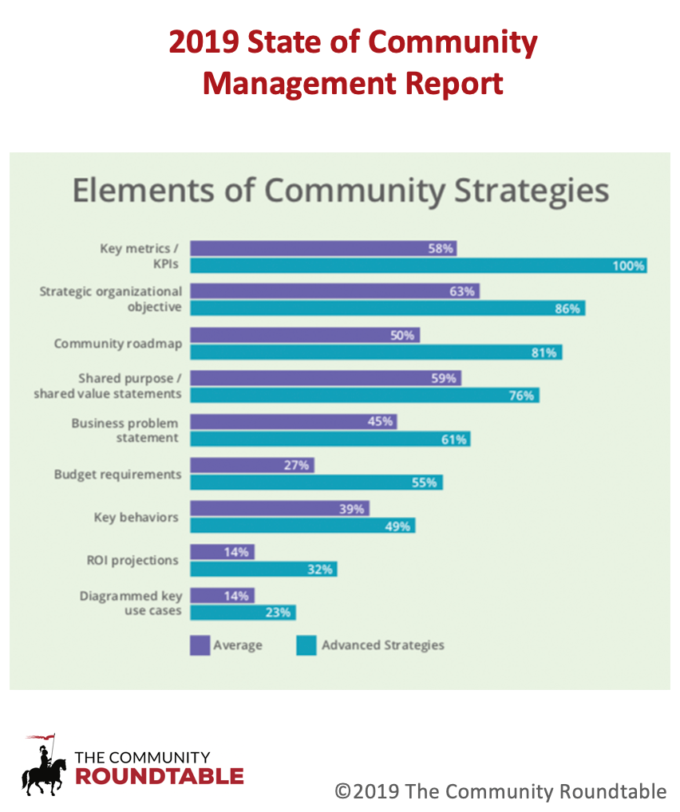Missed the SOCM 2019 webinar? Access the Archive here.
During the SOCM 2019 the audience asked GREAT questions. In case you missed the webinar or were too engrossed in the slides to check out the chat, we’ve saved the Q&A for you. We even added in some answers to questions we didn’t get to during the (too quick!) hour. Have a question about the State of Community Management 2019 report? Send us an email or tweet us with #socm2019.
Question: What do you consider to be “advanced strategies”.
Answer: An advanced community strategy in one that is approved, operational, and measurable. See page 16 in the SOCM 2019 report.
Question: What KPIs are typical to include in a Community Strategy?
| Answer: There is a graph at the bottom of page 16 (see below) of the SOCM 2019 report that looks at elements of community strategies, differentiated between the average and those with advanced strategies helps answer these questions. Additionally, relevant KPIs can be found in the graph on metrics that communities track. |

Question: What data was collected to determine ROI?
Answer: We calculate ROI with a few different factors that are explained in detail with TheCRs ROI Calculator – check it out to learn more!
Question: What was the sample size for the survey?
Answer: The 10th edition of the State of Community Management includes data from 325 community programs. You can learn more about the survey demographics on page 10 of the SOCM 2019 report, and about the methodology used on page 42 of the report.
Question: Rachel mentioned the author Francis Fukayma earlier. What book of his was she referring to?
| Answer: Trust! |
Question: What is NPS?
Answer: NPS – Net Promoter Score. A measure of customer loyalty. You can learn more about the NPS method here.
Question: How do you calculate the average value of answering a question?
| Answer: It varies from community to community, you can learn more about how we think about it here. |
Question: How do you define the difference between Individual Contributor and Team Manager? How were these terms determined?
| Answer: We define them as someone who manages people vs. someone who does not. We have two difference career tracks: management and individual contributor for people who are not interested in managing and just want to be experts in their field. |
Question: What is meant by business skills?
You can get an idea of what we generally mean about business skills in our Community Skills Framework here.
